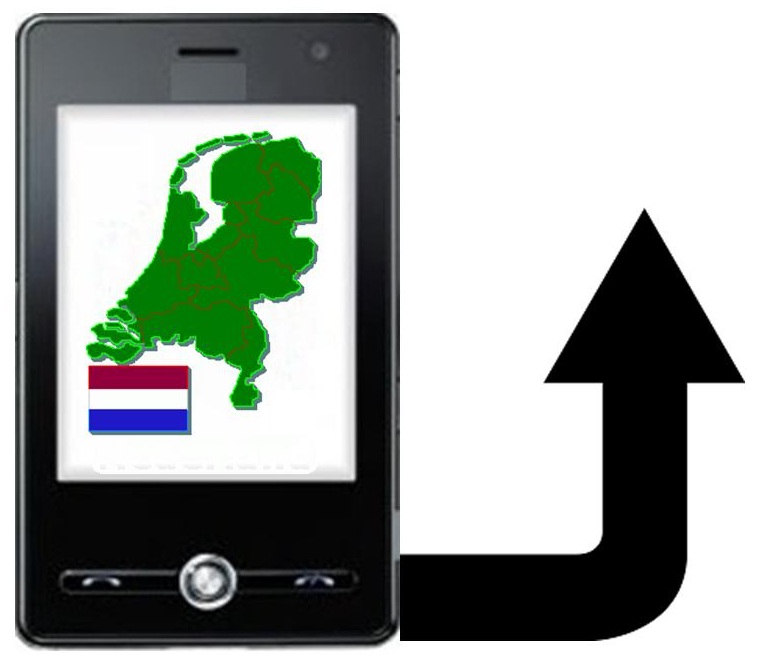 Dutch mobile commerce is on the rise
Dutch mobile commerce is on the rise
Mobile commerce in the Netherlands is on the rise. Dutch consumers are following the trend established in other parts of the world where mobile commerce is becoming the favored way to purchase products. The Netherlands has been serving as a testing grounds for several pilot projects concerning mobile payments, and consumers seem to have responded well to these projects. This has caused a steep spike in demand for mobile commerce services as well as aggressive growth in consumer participation.
Report highlights the growth of mobile commerce
According to a new report from Thuiswinkel, a market research firm, the number of consumers in the Netherlands making purchases from a mobile device has reached 1.7 million. This is a 73% increase over the level mobile purchases had been at in 2012. Consumers have place more than 5 million orders from their mobile devices, accounting for 12% of all online sales processed within the country. The report shows that mobile commerce revenues from the second half of 2012 rose to $310 million, with full-year revenues for 2012 reaching $560 million.
Access to comprehensive services helps boost adoption
Part of the reason consumers are becoming more involved in mobile commerce is the availability of mobile-based services. These services are making it easier for consumers to make mobile payments and abandon traditional forms of commerce. Dutch retailers are also making a strong push for the adoption of mobile commerce, further encouraging consumers to use their mobile devices to purchase goods and services. Thus far, there are no signs that mobile commerce adoption is showing any signs of slowing down.
Clothing and books among the most purchased products via mobile
The report from Thuiswinkel shows that the majority of Dutch consumers made mobile purchase for clothing, books, and sporting goods. Tickets for music, film, and sporting events were also popular purchases among consumers. Those participating in mobile commerce said that purchasing products online via a mobile devices was more convenient than other methods.
 Mobile commerce making significant progress in the UK
Mobile commerce making significant progress in the UK
Mobile commerce is showing strong growth in the United Kingdom. More consumers throughout the country are gaining access to smartphones and tablets, and these mobile devices are making it more convenient for a wider variety of people to shop online. Mobile commerce has garnered acclaim for the convenience it offers consumers and several retailers are beginning to grow more accommodating to these consumers as they show a penchant for mobile payments. The growth of mobile commerce is strongly tied to the availability of mobile technology.
Smartphone ownership on the rise
According to a recent study from Gartner, a leading market research firm, sales for smartphones and tablets have been growing rapidly over the past two years. In 2012, the number of smartphones in the world reached 1 billion — one for every seven people in the world. The rapid growth of smartphone ownership has exposed more people to the concept of mobile commerce, a concept they have shown a great deal of interest in.
Proliferation of mobile technology draws more interest into mobile commerce
Ofcom, a government-approved regulator of the communications sector in the United Kingdom, has released information showing that half of the population of the country own a smartphone, with 19% of the population owning a tablet device. Approximately 81% of these smartphone owners prefer to use their smartphones over traditional forms of communication. Approximately 31% of all site traffic in the United Kingdom comes from mobile devices as well, creating a strong need for retailers to become more accommodating to the needs of mobile consumers.
Ease-of-use and simplicity appeal to consumers
The reasons consumers have been showing such strong interest in mobile commerce are straightforward. First, mobile commerce is considered simple, with purchases made for products being accomplished in a matter of seconds. Another factor is that mobile commerce platforms are easy to use, proving accommodating to mobile consumers of varying degrees of comfort with mobile technology. Mobile shopping is also considered, among consumers, to be more enjoyable than shopping at traditional stores, adding further appeal to mobile commerce.
 Dutch mobile commerce is on the rise
Dutch mobile commerce is on the rise
 Mobile commerce making significant progress in the UK
Mobile commerce making significant progress in the UK